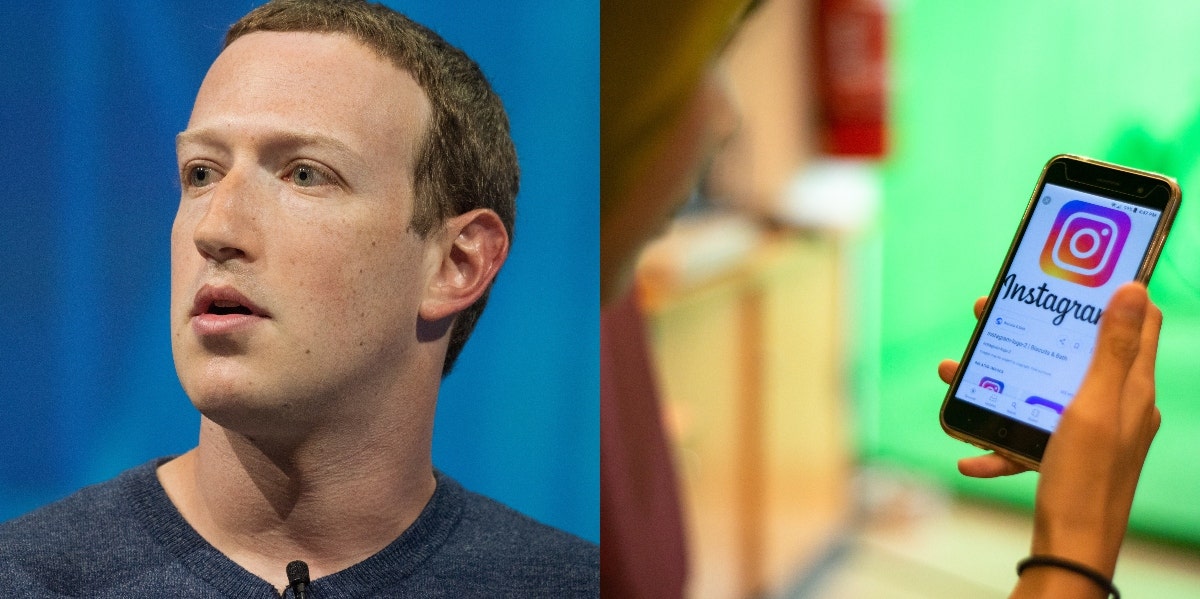Facebook Knows Instagram Destroys Teen Mental Health — But Actively Puts Out Information Downplaying It
They've been hiding scathing research.
 Frederic Legrand - COMEO / Ko Aun Lee / Shutterstock
Frederic Legrand - COMEO / Ko Aun Lee / Shutterstock Facebook has recently admitted to finding information pertaining to the Instagram app being harmful to a number of teenagers.
For the past three years Facebook has examined how Instagram affects it’s younger audience, with teenage girls being at the top of the list. Among teens who reported suicidal thoughts, 6% of American users traced the issue back to Instagram.
“Thirty-two percent of teen girls said that when they felt bad about their bodies, Instagram made them feel worse,” internal researchers working with Facebook reportedly wrote.
Facebook also found that 14% of boys in America said Instagram made them feel worse about themselves.
Though Facebook mentioned that there are a large percentage of teenagers who aren’t harmed by Instagram, the features on the app that were identified as the most harmful are the most popular and important parts of the app.
Facebook has been downplaying it's negative effect on teenagers.
However, the information is at odds with the public message Facebook has been spreading about it's effect on young people.
“The research that we’ve seen is that using social apps to connect with other people can have positive mental-health benefits,” CEO Mark Zuckerberg said at a congressional hearing in March when asked about children's mental health.
RELATED: How To Tell If A Picture Is Photoshopped & Save Your Self-Esteem
Zuckerberg has also reportedly been trying to block lawmakers from access the research Facebook has been doing.
Facebook seems to be prioritising engagement over mental health.
Most of the research conducted on the problematic issues on Instagram were given to Facebook CEO Mark Zuckerberg. Though, Facebook is struggling to address the problems while also trying to keep the app engaging for it’s younger users.
Most of the online presence on Instagram comes from a younger audience, with more than 20% of Instagram users being under the age of 22.
Instagram’s head of public policy, Karina Newton, responded in a blog post to the research with a promise that Instagram is looking into finding ways to pull users away from dwelling on certain types of Instagram posts.
“We’re exploring ways to prompt them to look at different topics if they’re repeatedly looking at this type of content,” Newton said.
“We’re cautiously optimistic that these nudges will help point people towards content that inspires and uplifts them, and to a larger extent, will shift the part of Instagram’s culture that focuses on how people look.”
Should parents be doing more to protect their children from Facebook and Instagram?
Facebook also revealed it’s plans to create a different version of Instagram for children specifically under the age of 13.
The announcement was immediately met with backlash, calling for Facebook to scrap it’s plans for Instagram for Kids and instead focus on fixing the present issue of protecting the young users on it’s present app.
A lot of the backlash for the app has fallen on Mark Zuckerberg’s shoulders, and while the CEO has a duty to make sure the Instagram app isn’t harming it’s users, maybe some of the responsibilities should fall on the young users’ parents.
It is true that Instagram is seriously harming teeangers’ mental health and causing extreme self-esteem issues. With the way the app is curated, it can be hard to escape the heavily edited pictures that can elicit that feeling of self-consciousness.
Though, on the other hand, there needs to be boundaries set for teeangers by their parents on monitoring their social media intake. The harmful effects of scrolling endlessly on Instagram can be damaging to their productivity as well as their mental health.
It can be a slippery slope to navigate, but there definitely should be more pressure on making sure there are boundaries being set for how teenagers navigate these harmful social media apps.
Nia Tipton is a writer living in Brooklyn. She covers pop culture, social justice issues, and trending topics. Follow her on Instagram.

